Progress thanks to green electricity
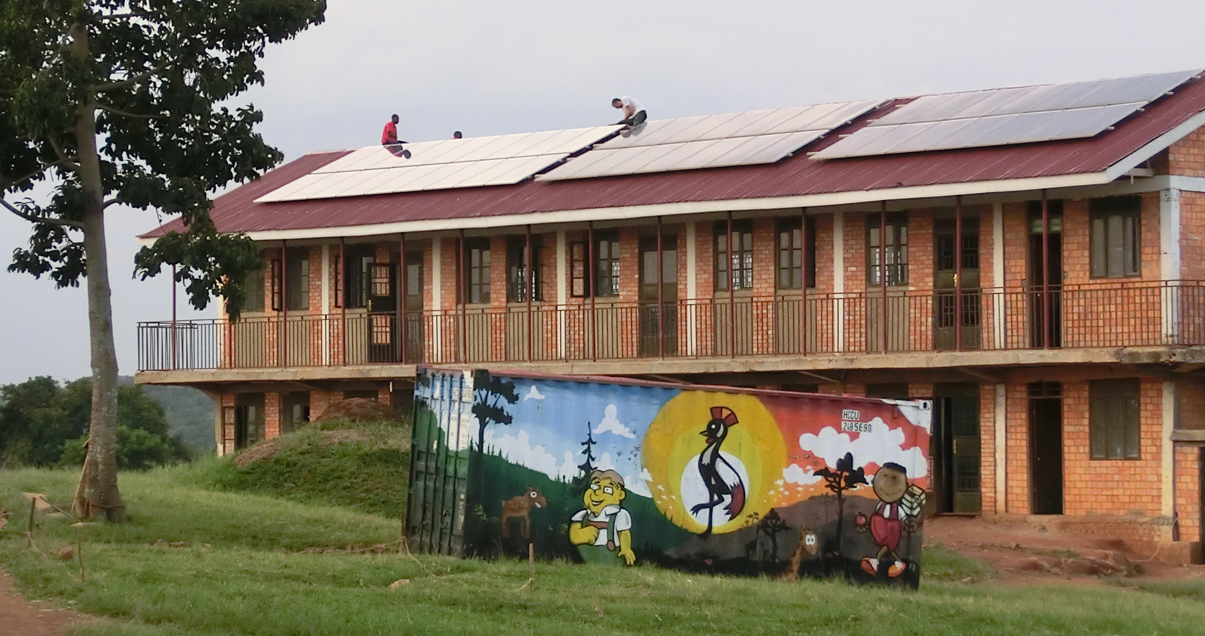
Breathtaking nature, bustling cities, more than 30 different languages and a multitude of attractive travel destinations: Uganda is multifaceted and has quite a few surprises in store – also in terms of its energy supply. Because when it comes to renewable energies, the East African country has far more to offer than initially meets the eye. And yet, in large parts of Uganda, many people still live without a reliable electricity supply. That is expected to change in the coming years. Solar energy and hydropower in particular are paving the way for better living conditions, education, work and prosperity.
Around 15 hours from Germany by plane, east of the Democratic Republic of the Congo and west of Kenya, the landlocked African country is largely situated on a plateau around 1,000 meters above sea level. In the southeast, it is bounded by Lake Victoria. Mountains, lakes and dusty, reddish roads characterize the landscape. But as picturesque as the rural areas are, Uganda is one of the poorest countries in the world. Around 42 million people live there. Many of them – especially in the more remote villages and mountainous areas – are still without a consistent supply of electricity and drinking water. This fact powerfully illustrates the poverty in the country.
At the same time, Uganda possesses a wealth of natural resources for generating energy. In addition to sufficient water and plenty of biomass (peat), the country has great potential for producing electricity using solar, wind and geothermal energy. And it is also surprising to discover that the balance of the electricity mix is already amazingly green. 12 percent comes from solar, wind and biomass, while hydropower supplies 68 percent. Just under 20 percent of the electricity currently generated comes from fossil energy carriers.
It is important to reduce this proportion and establish the new supply on the basis of renewable energy carriers. However, the central problem simply lies in the fact that there are still too few people with access to electricity. The country’s energy supply remains insufficient in many places – partially because too little use has been made of the available resources to date.
This situation is exacerbated by energy use that is inefficient in many cases. There are already initiatives – including from Germany – seeking to drive forward clean energy generation from renewable energies and provide more people with access to electricity.
On behalf of Germany’s Federal Ministry for Economic Cooperation and Development (BMZ) and the European Union (EU), the German international cooperation organization GIZ GmbH is advising the Ugandan government on bringing electricity to rural areas in Uganda. The major goal set by the Ugandan government is to be able to provide electricity for the entire population by 2040. A challenging task, since there are more than 50,000 villages nationwide and at present just over 20 percent of the population has access to electricity.
National strategy with ideas from Germany
For instance, GIZ is helping the Ugandan Ministry of Energy to draw up a national electrification strategy. “The aim is to electrify at least half the country in a decentralized way, using solar energy and biomass,” a GIZ spokesperson explained in an interview with Sonnenallee. To achieve this goal, better conditions for private sector investment are also important. That is why the organization is also supporting the Ugandan government in this key area – through simplified licensing procedures for energy services, for example. This includes aspects such as trading with electricity and compliance with standards like the suitable voltage.
People from central Germany, for example, are getting involved not for commercial gain, but purely on a voluntary basis in order to make life in Uganda a great deal better. This includes the society Tohifu (TOGETHER – Help for Uganda e.V.), based in Kassel, Germany.
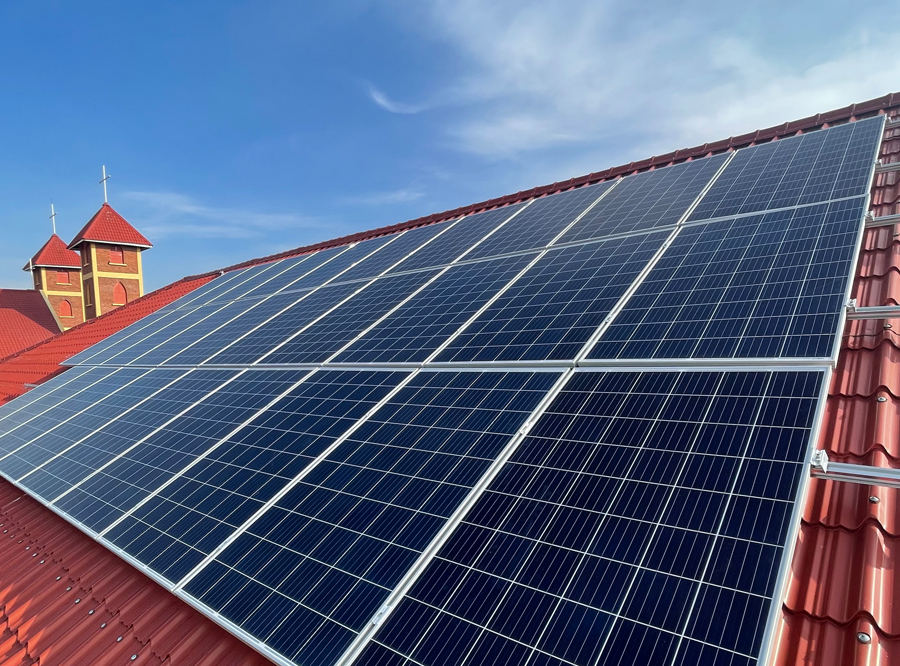
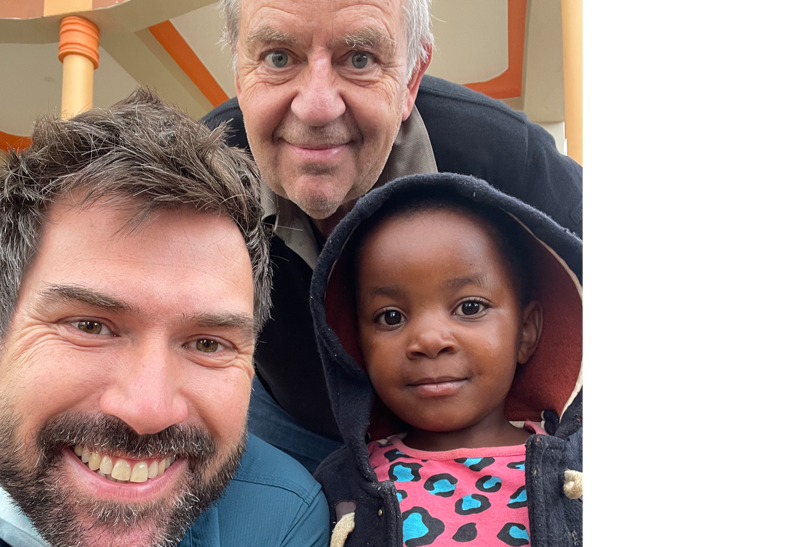
A better life thanks to better healthcare
At its core, the help being offered comes back to one thing, time and time again: clean, reliable electricity. The core concerns of the association include addressing the supply of drinking water in remote regions and improving healthcare and education opportunities locally. One outstanding project undertaken by the society – a project that is constantly being developed further and driven forward – can be found in the Kooki region in the west of the country. There were no facilities such as hospitals or schools when Heinz Claßen traveled there for the first time. Claßen has been involved in the Kassel-based society together with his wife since his professional retirement.
“In a region without any centralized power supply, access to electrical energy means a complete change of life for the people living there,” he explains. The change began in Kooki with the first solar power system installed there, which generated the energy to run a deep well. This gave more than 5,000 people safe access to drinking water. However, the solar plants erected with the help of the association were not only able to operate the water pumps, now a school site for more than 2000 pupils could also be built. Lighting, a computer lab, access to the Internet and power for cell phones were the prerequisites for the success of the St. Andrea Kaahwa schools, which today are among the best in the western part of the country. Likewise, over time, more and more small businesses and enterprises settled in the area.
Another person who was able to help create this positive effect on the ground and experience it at close quarters is Dennis Halpape, Project Manager in the Energy Systems business unit of SMA Solar Technology based in Kassel, Germany. Along with some of his work colleagues, he traveled to Uganda privately as part of the society TOGETHER in order to install off-grid solar systems (also known as mini-grids) locally.
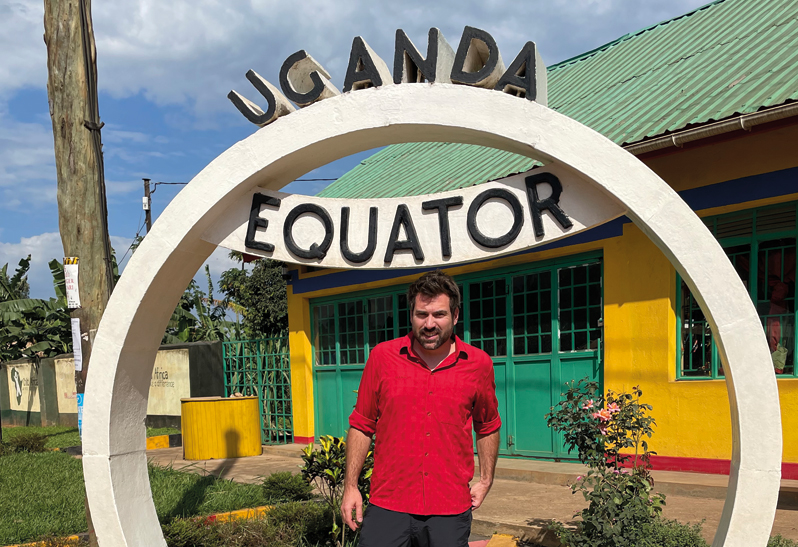
“For the people in Uganda, access to electricity means that the day does not have to end at sunset any more,” said Halpape, describing his impressions. “When I was first there twelve years ago, there were barely any lights on in the Kooki region. That is no longer the case today. When I was last in Uganda, the direct access to electricity had changed things completely for the small shops and was enabling them in particular to flourish.
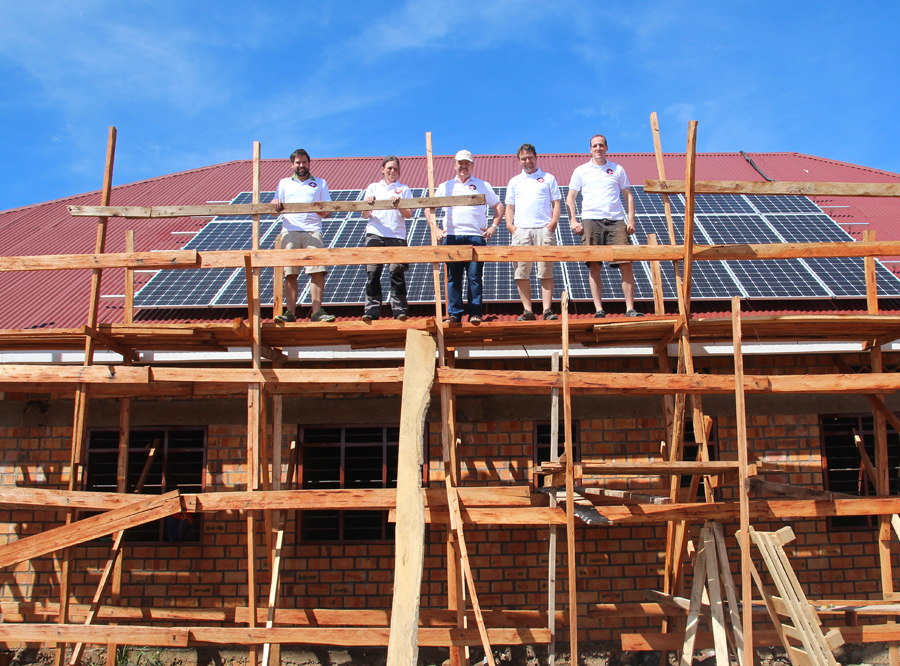
But it is not only a matter of improving the local economy. In 2014, concern about healthcare in Uganda’s sparsely populated areas led TOGETHER to consider building a hospital with its Ugandan partner organization Torudes. With the aid of donations from Germany and funding from the BMZ, the new hospital was able to open its doors in mid-2016. The electricity for running the hospital again comes from the off-grid solar system with storage capacity that Halpape installed with his team.
Although hospitals are particularly reliant on a stable electricity supply, schools also depend on having one. “Even when a place has a connection to the utility grid, no one knows when electricity will be available and for how long, or when it will be restored after an outage,” he said, explaining the situation in many parts of the country. In Kooki, these difficulties are now history.
A large Ugandan vocational school run by the NGO, ‘A Chance for Children’, an organization cooperating with TOGETHER, is now also benefiting from a solar island system that Halpape and his team from Kassel implemented. Previously, the equipment in the associated sewing workshop and the workshops for metalwork, carpentry, corn mill and shoemaking ran on electricity provided by diesel generators. Because the students use the workshops primarily during the daytime when the sun is shining, solar energy now offers an economical and environmentally friendly alternative. “We hope, therefore, that we have helped the health center and the vocational school with our efforts and that everyday life is now a bit easier,” explained Halpape. “The fact that our technology could help support such essential and therefore vital facilities is an incredibly good feeling,” he said, explaining the reasons for getting involved.
Education as the key to self-help
Education is also an important component in the project undertaken by GIZ – just like the construction and operation of off-grid solar systems. GIZ is supporting vocational training of specialist personnel, so that the people in Uganda can gain and retain the knowledge necessary for utilizing renewable energies and further developing them. It has developed a nationally certified syllabus and teaching materials for solar courses in which the installation of mini-grids and PV systems at private homes are taught. What’s more, in 2021, GIZ – together with German and Ugandan partners – set up a training center in the Ugandan capital Kampala, where around 300 solar technicians have been trained so far.
This has a mini-grid that acts as a demonstration system, thus enabling the trainees to learn how to work with the PV system in practice. Another 600 trainees are expected by the end of 2023. Furthermore, teachers are also being trained (half of which are women).
It will be exciting to see how the country’s electrification progresses. It already has great potential and is on the right track, thanks to initiatives and committed helpers.

